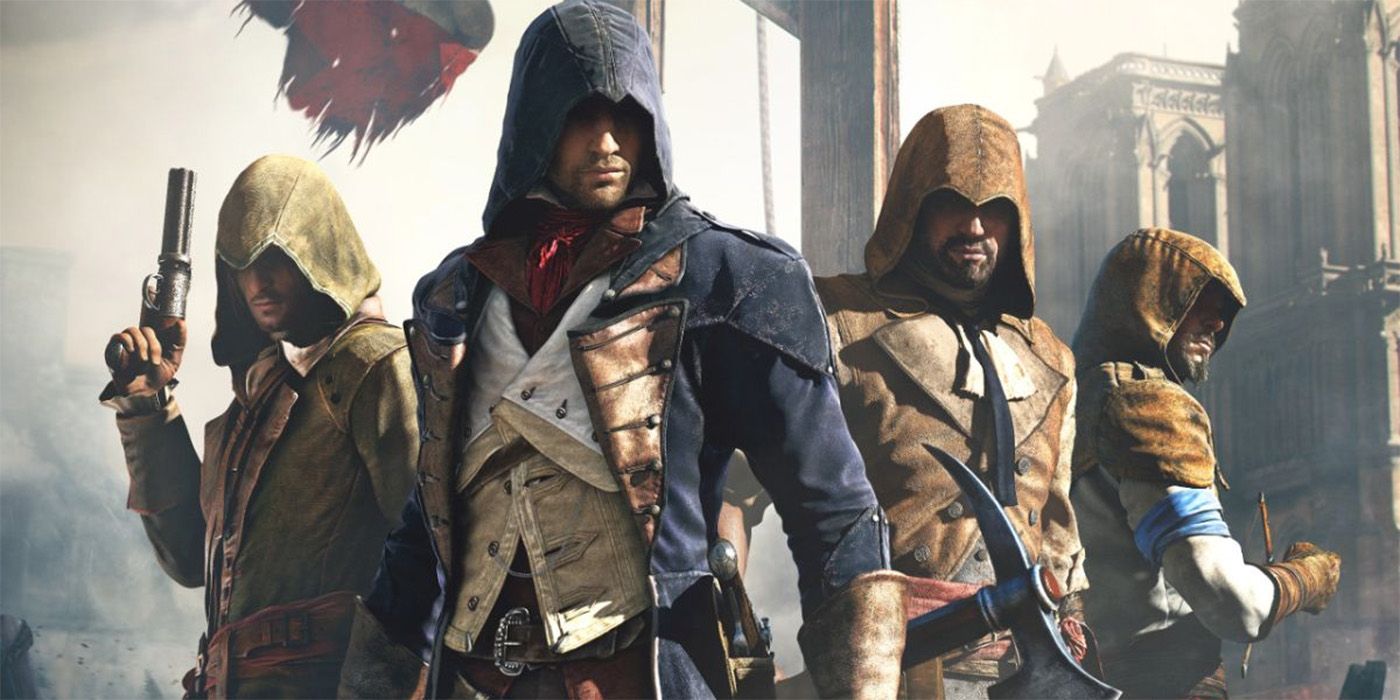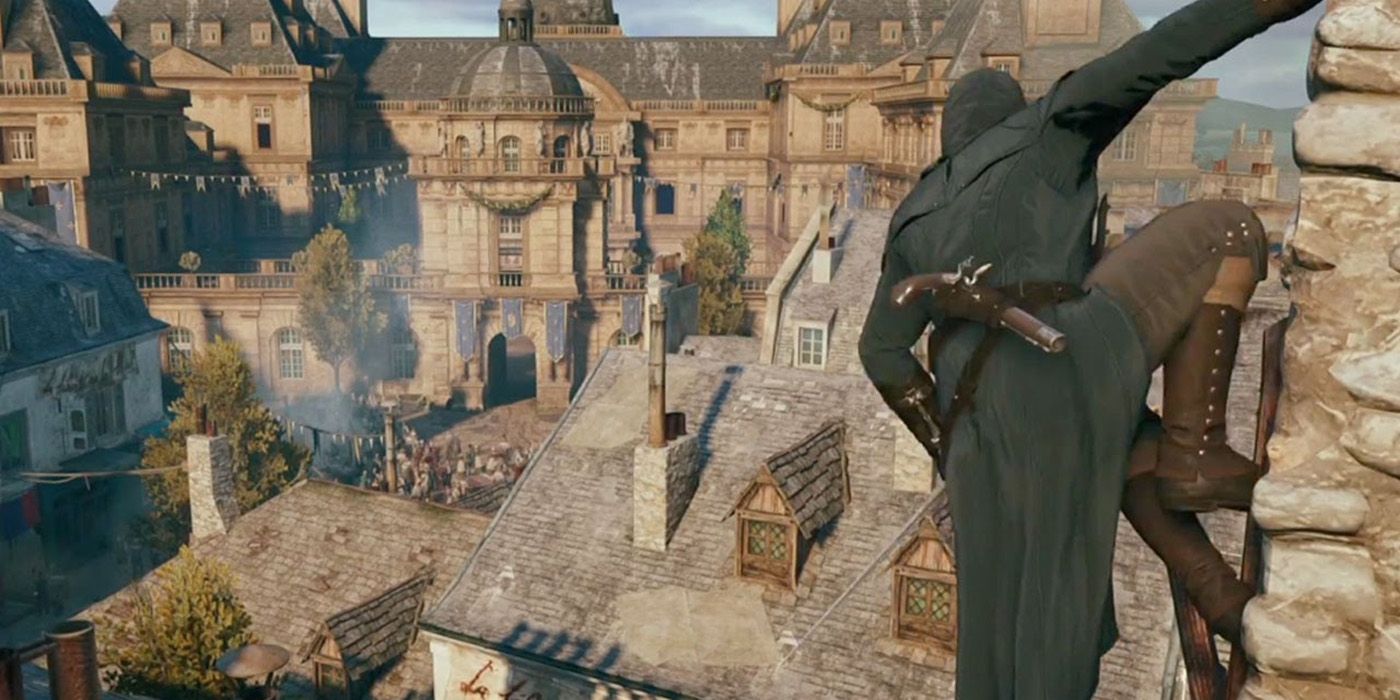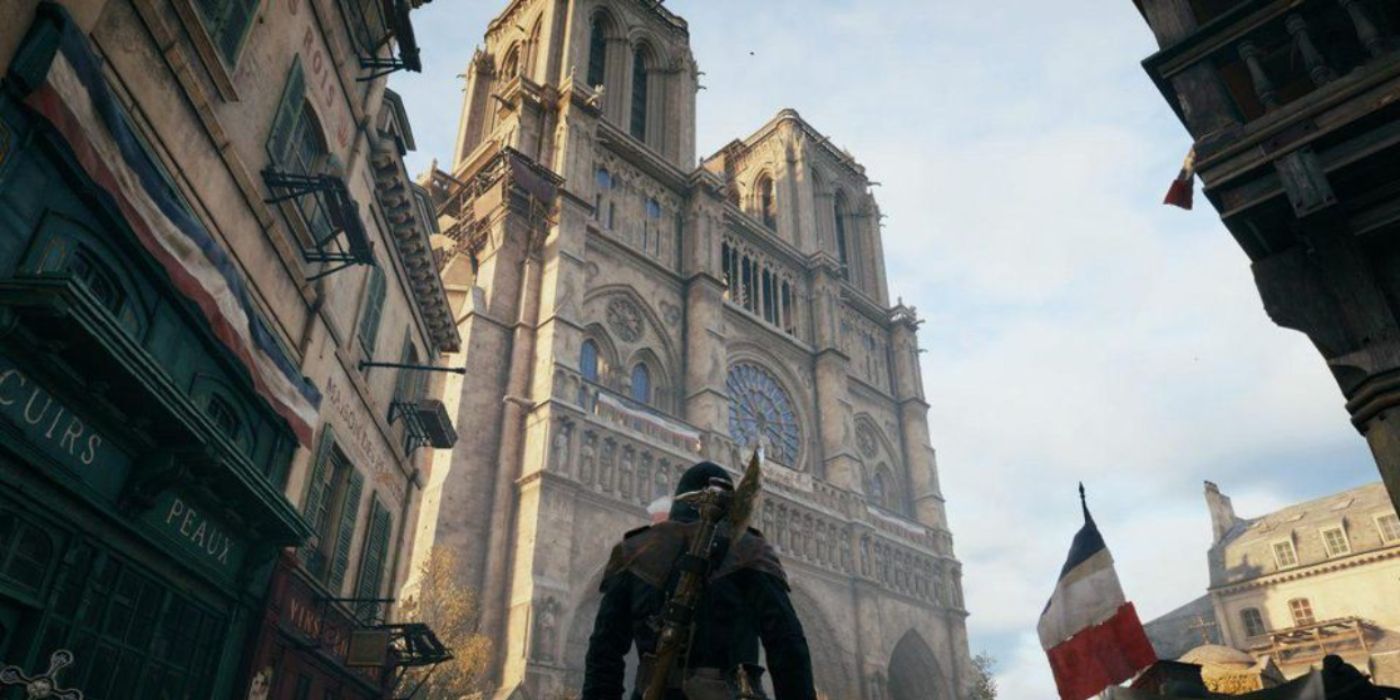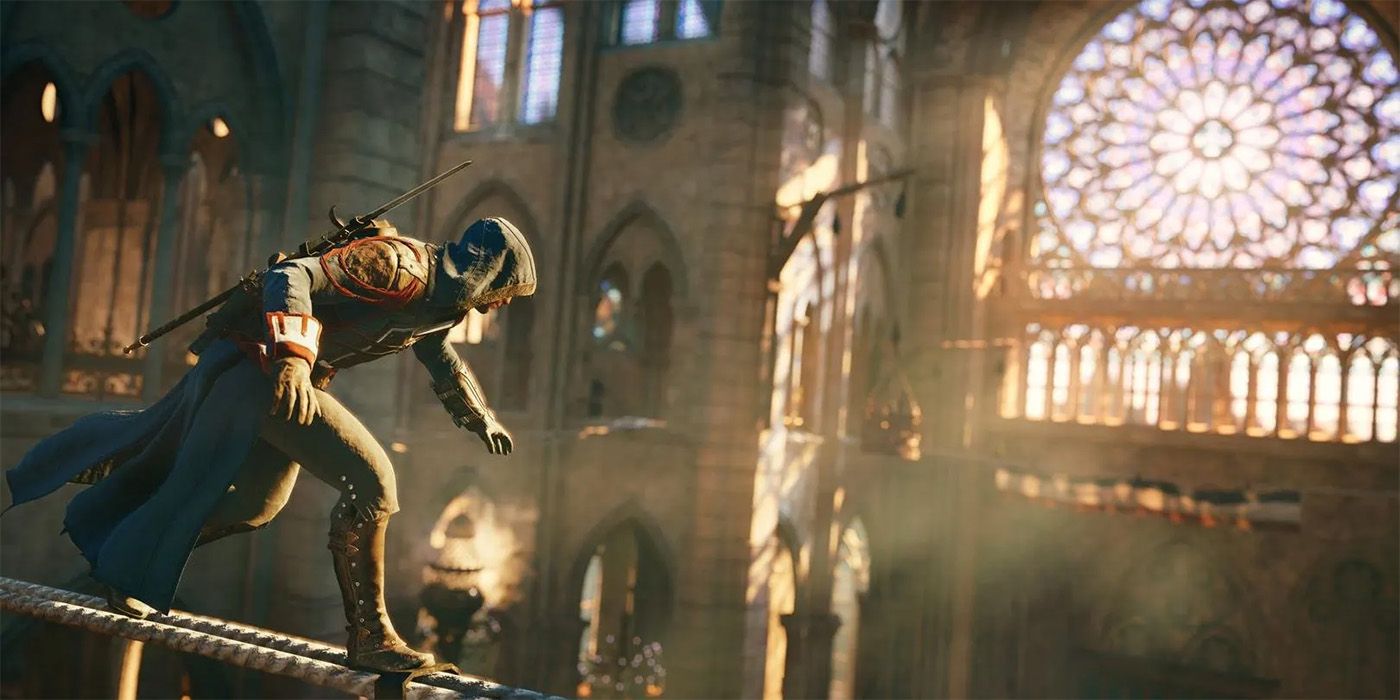Many remember Assassin's Creed Unity as one of the weakest and most poorly received entries in the series upon its initial release. Coming out as the same day as Rogue, Unity disappointed fans and critics alike due to many game-breaking bugs and glitches, some which made game borderline unplayable. But since its 2014 release, Ubisoft has patched the game and fixed many of its issues, and now it's actually pretty good.
Unity provides one of the most fluid gameplay experiences in the series. It makes great improvements to the mechanics of previous games, while adding newer features, some of which, unfortunately, have not been reintroduced due to how the game was received. While Assassin's Creed has since gone a different direction, transitioning further into the action-RPG genre with Origins and Odyssey, the polished version of Unity represents what the action-adventure Assassin's Creed games could have been had the game not been rushed.
The Gameplay Mechanics
Assassin's Creed Unity doesn't just improve the parkour of previous games; it completely innovates the mechanic, making it smoother than in previous games in the series, as well as the newer games, which have deemphasized freerunning and climbing buildings. In Unity, players could freerun both upwards and downwards, allowing for more efficient and stylish descents from tall buildings. Traversing Paris is extremely fluid, with many new animations and movements, such as sliding and vaulting, being introduced to make the entire game feel satisfying to play.
Stealth gameplay also gains some new features, such as crouching, taking cover and using smokebombs. Many assassination missions in Unity can be approached via different methods, nearing the open-ended gameplay of the Hitman series. The hidden blade can be upgrades into the phantom blade, which allows one-shot kills from a distance. Unity's combat is also a big improvement from prior games, making fighting multiple guards at the same time much more challenging and engaging and introducing mechanics like the perfect parry. It also encourages players to rely on stealth instead of steamrolling the guards as if it were a Rambo game.
The Open-World
The open-world of Unity is perhaps still the most beautiful setting in the entire franchise, even beating out the latest entries due to its stunning aesthetics and gorgeous historical recreations. Assassin's Creed has always been about uncovering a conspiracy in a historical simulator of sorts, and Unity does that expertly in the way they designed revolutionary Paris. The fast, new parkour mechanics makes exploring the map and its beautiful landmarks a joy. Changing the HUD mode to "light," which turns off all invasive UI, and switching the language to French, with English subtitles makes for a highly immersive experience, although without an active mini-map, collecting all collectibles might be a little tedious.
However, if Unity has any major weaknesses remaining, it's the game's collectibles, which are dotted around the map in arbitrary locations with no hint towards their existence except for icons on the map. The rewards themselves aren't particularly exciting, being simple customizable outfits. The side missions also aren't really worthwhile, with most of them being simple kill quests without much of a story.
The Story
Unity's story is well-written and one of the more engaging ones among the post-Ezio games. Arno's story, although not particularly revolutionary or risky, is enjoyable. Most importantly, it pulls off the traditional Assassin's Creed narrative formula of unraveling a Templar conspiracy incredibly well, something that seems to be lost in the most recent installment of the series.
In hindsight, Unity appears to be Ubisoft's attempt at building up the core of the series originally established by the first games. Unity built upon the beloved mechanics of the earlier games in the series and, perhaps if the game had been delayed an extra year or so to work out the bugs, the polished final product would have been praised as a high-point for the franchise.
While Origins and Odyssey are pretty good games in their own right, had Unity been successful, it could have been a building block for future Assassin's Creed games, bringing the series to new heights. Unfortunately, that's not how reality played out, and, instead Unity's many bugs and glitches led the series to go in an entirely different direction, one without an actual creed of assassins being included. Still, Unity deserves credit for what it tried to do and, ideally, Ubisoft will someday release an Assassin's Creed game that combines Unity's fluid parkour and stealth and the fresh mechanics of Origins and Odyssey.




